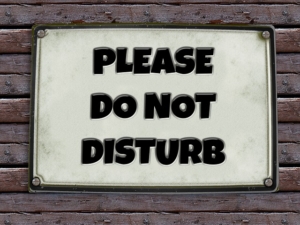Engaging Readers – Why Copywriters Talk to Themselves
I spend most of my working day talking to myself.
No, don’t make that face. I realise this makes me sound bonkers, but I spend a lot of time writing. And then I read it out loud. Actually, I mutter. Then I delete, type, mutter some more and type again.
If you’re writing something – anything at all – there are several good reasons why you should talk to yourself too. Here are 4 of them:
Your reader does it
 Well, kind of. We all talk to ourselves silently when we read. It’s called sub-vocalisation which is – thanks, Wikipedia – a natural process where we imagine the sound of a word and “hear” it in our minds. It’s how the brain makes sense of what we’re reading and apparently, it helps us remember more of it.
Well, kind of. We all talk to ourselves silently when we read. It’s called sub-vocalisation which is – thanks, Wikipedia – a natural process where we imagine the sound of a word and “hear” it in our minds. It’s how the brain makes sense of what we’re reading and apparently, it helps us remember more of it.
When someone reads your writing they’ll be “saying” it to themselves in their heads. And if it’s on the web, you can guarantee they’ll be skimming it. Say it out loud and you can tell, straight away, whether you’ve banged on too long. Basically, you’ll find it easier to write pithy sentences that get your point across.
… and breathe
This sentence is going to be a really good example of the next reason why you should risk making a plonker of yourself by reading your writing out loud rather than chickening out and trusting to luck that your words will make complete sense on the page and not make your reader…. pass out.
See? That’s why website copywriters use sentences of fewer than 20 words.
It doesn’t matter if you’re writing an email, newsletter, company report or a blog. If you run out of breath halfway through a sentence, cut that sentence in half.
Following natural speech patterns makes things a lot easier to read. You don’t speak in sentences that go on longer than you can breathe, so don’t write them.
And yes, I’m following my natural speech pattern. So hopefully, this means you’re more likely to read on to my next point which is…
Smile
 Writing in a conversational style is quite difficult. It’s really easy to come across as if you’re punching your reader in the face.
Writing in a conversational style is quite difficult. It’s really easy to come across as if you’re punching your reader in the face.
OK, don’t get me wrong. I’m not recommending a writing style that resembles your conversation with Dave after a few beers. But when you’re writing, you need to find the right “voice” – and your most engaging, fluent voice is the one you use when you’re talking to a friend. If you smile, it’s easier to find it.
Get Dave to read it
Sit back and listen to someone else reading your work aloud. Dave, your colleague, your mum – it doesn’t matter, they’ll be able to pick up problems you’ve missed. They won’t be expecting your odd turns of phrase, weird pauses or idiosyncratic spelling mistakes. So if they stumble over anything, change it.
In case you were wondering, I muttered to myself all the way through this blog post.
About the author: Helen Beckingham

“Helen Beckingham is an SEO copywriter at Keyword Copywriting. Expert scribbler on websites, blogs and e-books, rather good bassoonist, terrible singer. Contact helen@keywordcopywriting.co.uk”
Join me on keywordcopywriting.co.uk




Good.
Excellent advice about finding one’s voice. Well “said” (well written. . . . and well read)!
When I was a beginning writer, I had many people say some variation of, “Gee, you write just like you talk.” I always took that as a compliment. Now I know WHY I write like I talk; it’s because I talk WHEN I write! If it doesn’t sound good coming out of my mouth, it won’t sound good to the reader’s ear. Glad to know I’m not alone.
Yep, you’re not alone. And you should definitely take it as a compliment, Jerry. It’s a tricky thing, writing as you talk – especially in someone else’s voice – and nothing beats that moment when it comes together and works. Big thanks to you both for your lovely comments.
Spot on, Helen. I call it ROL and, as you suggest, every professional writer does it. It’s one of 21 persuasive writing techniques I’ve identified. ROL helps you hear what your reader will hear in their head. It’s great for editing too, ‘cos it slows you down and forces you to say each word. And it’s the best (the only?) way of assessing your tone of voice, ‘cos we don’t read tone of voice, we hear it. Thanks again.